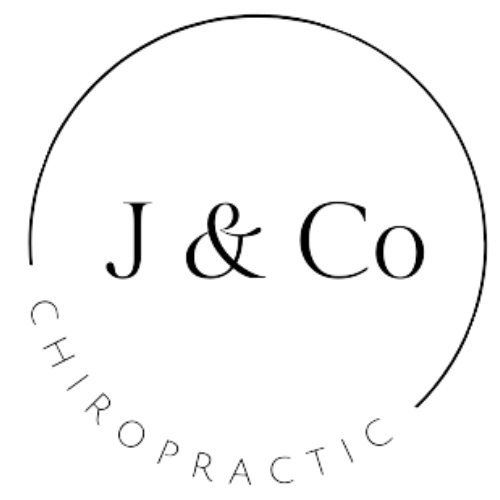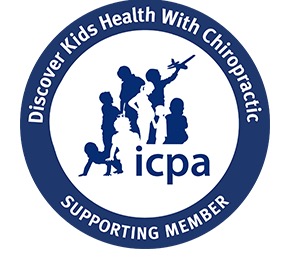Digestive health plays a pivotal role in our overall well-being, influencing everything from energy levels to immune function. Recent research has shed light on the intricate relationship between the spine and the digestive system, uncovering the impact of spinal health on gut function.
As such, more and more people are turning towards chiropractic care as a solution to their digestive problems. Let’s take a look at the impact of chiropractic care on digestive health.
What is the Gut-Spine Connection?
The intricate relationship between the nervous system and digestive health forms the foundation of the gut-spine connection. The autonomic nervous system, comprising the sympathetic and parasympathetic branches, plays a crucial role in regulating various bodily functions, including digestion.
The communication between the brain and the gut relies on a delicate balance within this system, influencing the secretion of digestive enzymes, gut motility, and overall gastrointestinal function.
Spinal misalignments, known as subluxations, can disrupt the normal functioning of the nervous system. When these misalignments occur along the spine, particularly in the thoracic and lumbar regions, they may impede the proper transmission of nerve signals to the digestive organs.
This interference can result in irregularities in digestive processes, potentially leading to issues such as bloating, constipation, or acid reflux.
The demands of modern life often contribute to stress and poor posture, both of which can exacerbate spinal misalignments. Stress activates the sympathetic nervous system, commonly known as the “fight or flight” response, diverting resources away from digestion.
Poor posture, whether due to prolonged sitting or standing, can create imbalances that affect the alignment of the spine and, consequently, impact the nerves responsible for digestive function.
Chiropractic Principles in Digestive Health
Chiropractic care operates on the principle that the nervous system governs the body’s functions, and any disruptions in this system can impact overall health. Chiropractors believe that spinal misalignments hinder the nervous system’s ability to coordinate bodily processes, including digestion.
By restoring proper alignment, chiropractic care aims to optimize nervous system function and, consequently, support digestive health.
Spinal adjustments, a cornerstone of chiropractic care, involve precise manipulations to correct subluxations and enhance spinal alignment. When applied to areas affecting the nerves connected to the digestive system, these adjustments aim to restore the normal flow of nerve signals.
This improved communication between the brain and digestive organs may lead to enhanced digestive function, reduced inflammation, and an overall improvement in gut health. Chiropractors focus on identifying and correcting misalignments that could disrupt the nerve signals traveling between the spine and the gut.
By addressing these subluxations, chiropractic care seeks to alleviate stress on the nervous system, promoting a more efficient and balanced communication network. As a result, individuals may experience relief from digestive discomfort and a restoration of optimal gastrointestinal function.
Digestive Issues Linked to Spinal Misalignments and Symptoms
Irritable Bowel Syndrome (IBS)
Individuals with IBS often experience abdominal pain, bloating, and irregular bowel habits. The link between IBS and spinal misalignments lies in the potential impact of subluxations along the thoracic and lumbar spine on nerve signals to the intestines.
These misalignments may contribute to the manifestation and exacerbation of IBS symptoms, highlighting the interconnectedness of spinal health and digestive well-being.
Gastroesophageal Reflux Disease (GERD)
GERD is characterized by symptoms such as acid reflux and heartburn, often stemming from issues with the lower esophageal sphincter. Misalignments in the thoracic spine can influence the function of this sphincter, potentially leading to the regurgitation of stomach contents into the esophagus.
Understanding the connection between GERD symptoms and spinal misalignments emphasizes the importance of spinal health in managing digestive concerns.
Functional Dyspepsia
Functional dyspepsia presents with persistent pain or discomfort in the upper abdomen, along with symptoms like bloating and nausea. Misalignments in the thoracic and upper lumbar regions may affect the nerves controlling stomach function, contributing to the development of dyspeptic symptoms.
Recognizing this connection underscores the potential role of chiropractic care in addressing functional dyspepsia.
Constipation
Constipation, characterized by infrequent bowel movements and difficulty passing stools, may be influenced by misalignments in the lumbar spine.
Subluxations affecting nerves to the intestines can impact bowel motility and function, potentially contributing to the development or persistence of constipation. Addressing spinal misalignments becomes relevant in the comprehensive management of this common digestive issue.
Inflammatory Bowel Disease (IBD)
Inflammatory bowel diseases like Crohn’s disease and ulcerative colitis are complex conditions with symptoms ranging from abdominal pain to rectal bleeding.
While not directly caused by spinal misalignments, the stress associated with managing IBD may be influenced by misalignments in the spine, highlighting the importance of a holistic approach, including chiropractic care, in supporting individuals with IBD.
Gallbladder Issues
Conditions affecting the gallbladder, such as gallstones or inflammation, can manifest as pain in the upper right abdomen and digestive disturbances.
Misalignments in the mid to upper back may impact nerves related to gallbladder function, potentially contributing to the onset or exacerbation of gallbladder issues. Recognizing the potential role of spinal health in gallbladder function underscores the holistic consideration needed in digestive health care.
Chiropractic Techniques for Digestive Health
Spinal Adjustments (Manual Manipulation)
Chiropractors use hands-on techniques to apply controlled force to specific vertebrae, correcting misalignments and restoring proper spinal function. Improved spinal alignment enhances nerve communication, potentially alleviating disruptions in signals to the digestive system and promoting optimal function.
Soft Tissue Manipulation (Massage and Myofascial Release)
Soft tissue techniques focus on relieving tension in muscles and fascia surrounding the spine, addressing tightness that may contribute to poor posture and spinal misalignments. Alleviating muscle tension supports spinal alignment, reducing stress on nerves connected to the digestive system and potentially easing digestive discomfort.
Flexion-Distraction Technique
This technique involves a gentle, rhythmic pumping action on the intervertebral discs, aiming to increase disc height and improve spinal mobility. Particularly beneficial for individuals with disc-related issues affecting the lumbar spine, it may contribute to reduced pressure on nerves related to digestive function.
Activator Method
Chiropractors use a handheld instrument, the activator, to deliver controlled, low-force impulses to specific points along the spine. This precise technique can be suitable for individuals who prefer a gentler approach, aiming to improve spinal alignment and potentially positively influence digestive function.
Postural Advice and Exercise Prescription
Chiropractors provide guidance on maintaining proper posture in daily activities and may recommend exercises to strengthen core muscles. Improved posture reduces stress on the spine, potentially preventing misalignments that could affect nerves involved in digestive processes.
Chiropractic Care
While chiropractic care is not a cure for digestive disorders, it offers a holistic and non-invasive approach that may contribute to improved digestive function. Over time, you’ll see an improvement in digestive function and spinal health all at once.
Don’t hesitate to reach out to a chiropractor to improve your digestive health – J and Co. Chiropractic is here to help! Our expert chiropractors are dedicated to helping you improve your health.


